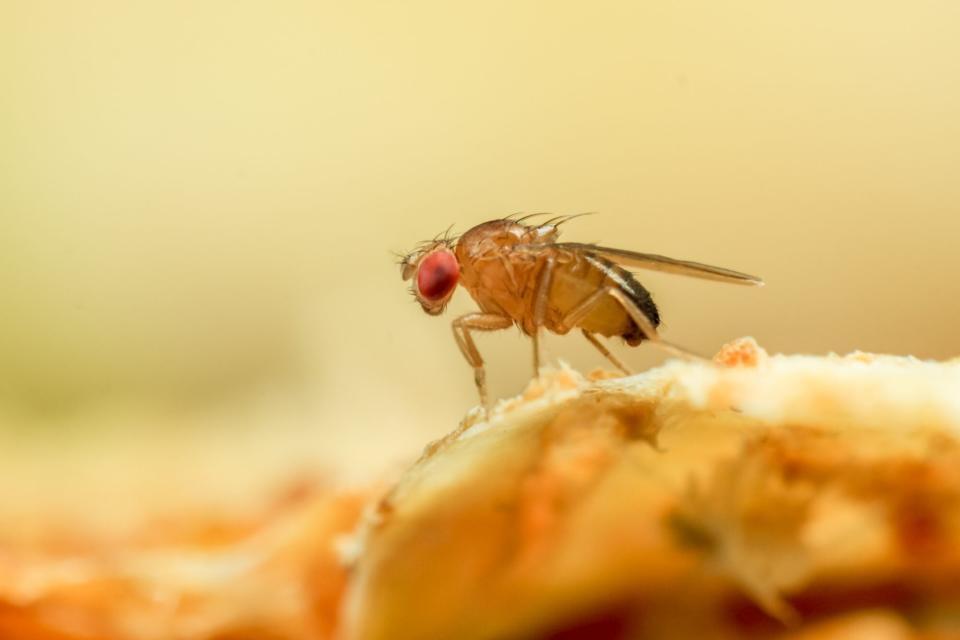How to Rid Your Home of Fruit Flies Once and for All
The small black flies you often find on or around produce left out on the counter are likely fruit flies. The pests are more of a nuisance than anything else, but if you have an infestation in your home, a minor irritation can quickly turn into a major one. That's where learning how to get rid of fruit flies comes into play.
Contrary to popular belief, fruit flies are not spontaneously born from rotten fruit; they also do they emerge from inside spoiled fruit, says Jim Fredericks, PhD, BCE, chief entomologist for the National Pest Management Association. "Instead, fruit flies feed on the yeast found on decaying fruit," he says. "Fruit flies are able to detect the odor of fermenting fruit from great distances and their tiny stature allows them to enter a home through minuscule cracks and services, including through mesh window and door screens." Ahead, we're sharing expert tips to remove the pests from your home, once and for all.
Related: The Difference Between Fruit Flies and Drain Flies

Joao Paulo Burini / Getty Images
How to Prevent Fruit Flies
The key to preventing a fruit fly infestation is to eliminate any potential breeding grounds. "Fruit fly eggs may already be present on fruit or vegetables that are brought home from the grocery store," explains Fredericks. "Since they're so tiny and determined, there's little you can do to keep them from coming inside." Instead, he suggests keeping any eye on any fruit left on the counter for signs of over-ripening and disposing of rotten fruit in sealed trash cans or outdoors. "Also, remove kitchen trash daily and keep garbage and recycling bins clean," he says.
How to Address an Existing Fruit Fly Infestation
If you're dealing with an existing fruit fly problem, you can take a page from Martha Stewart's Homekeeping Handbook ($20.49, amazon.com). She suggests trapping the pests in a jar by using a small piece of ripe fruit (or even a few drops of liquor or beer) to lure them in. The secret is to place a paper funnel on top of the open jar so that once they enter they won't be able to get back out.
You can also try to trap them in a shallow dish of apple-cider vinegar covered in plastic wrap. Our founder says the trick is to poke pin sized holes into the wrap, which will allow the bugs to get drawn in by the scent of the vinegar but prevent them from escaping.
Consider a Natural Approach
If you want to keep it totally green, Kari Warberg Block, pest prevention expert and the CEO and founder of EarthKind, says you can add certain plants to the mix. "Fruit flies were deterred by our grandmother's with sachets made from rosemary, basil, and bay leaves placed around the home," she says. "I keep a fresh basil plant growing by my kitchen sink to address the most common [origin flies]-the drain."
Act Quickly
Fruit flies can multiply by hundreds within hours, according to Warberg Block, which is why she says it's important not to let the bugs get a foothold in your home. "In fact, fruit flies can even produce 500 offspring in about eight to 10 days," she says, adding that it's important to act fast once you notice them.

